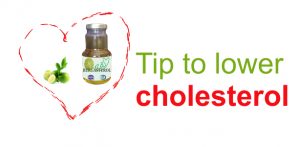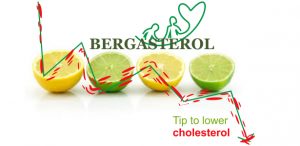Reduce your chance of cardiovascular disease with our top tips and advice
High cholesterol levels can have a dramatic effect on your risk of cardiovascular disease.
There’s a considerable amount of confusion surrounding cholesterol – what it is, where it comes from and why it’s so bad for us. The truth is, when the correct balance is maintained, cholesterol plays an important role and is even considered necessary for good health. It’s when there’s too much cholesterol in the blood that it becomes the cause of major concern, increasing your risk of heart disease and stroke.
Yet, what people often tend to overlook is that cholesterol is essential for human life. Cholesterol forms the basis of steroid hormones such as testosterone and progesterone (sex hormones), cortisol (for stress adaptation) and vitamin D, for healthy bones.
Cholesterol is also responsible for repairing protective walls of cells that are damaged during the course of daily life.
THE BALANCE RIGHT
Sending cholesterol around the body effectively requires the assistance of couriers, of which low-density lipoprotein (LDL) is the major force. Problems arise, however, when the blood carries too much LDL cholesterol – often referred to simply as ‘bad cholesterol’ – generally as a result of poor diet, lack of exercise, smoking or a genetic predisposition to high cholesterol. Being overweight or having diabetes also puts you in the high-risk category.
If there is too much LDL around, it functions abnormally, dumping too much cholesterol at each repair site and into the walls of arteries, which ultimately damages them.
But while LDL offers a delivery service, HDL (high-density lipoprotein, also known as ‘good cholesterol’) is the collector, receiving surplus cholesterol to be taken to the liver for processing and removal.
HDL also removes excess cholesterol from the arterial walls, helping undo the damage done by LDL.
The most exciting development in herbal medicine for high cholesterol comes in the form of bergamot juice as a remedy for indigestion and poor circulation and, as scientists have now discovered, for high cholesterol, lowering raised levels of cholesterol and triglycerides in the blood.
LIFESTYLE SOLUTIONS
Lifestyle is a big factor in determining your cholesterol levels. Being overweight or carrying excess body fat, smoking, excess alcohol consumption and a lack of exercise can all contribute to high cholesterol. And if you already have a family history of the condition, these risk factors are even more important. Live a healthy, active life, without smoking, and you can make a big difference to your cholesterol balance.
Smoking has the unfortunate ability to make LDL cholesterol even more harmful than it already is by stimulating the process of cellular damage. The advantages of quitting smoking can’t be stressed enough.
Regular physical activity – defined as at least 30 minutes of exercise on most days of the week – is also considered essential. Exercise actually helps to reduce LDL levels in the body while increasing levels of HDL. Exercise has the added benefit of helping you to shift excess weight, a significant contributor towards high LDL levels.

